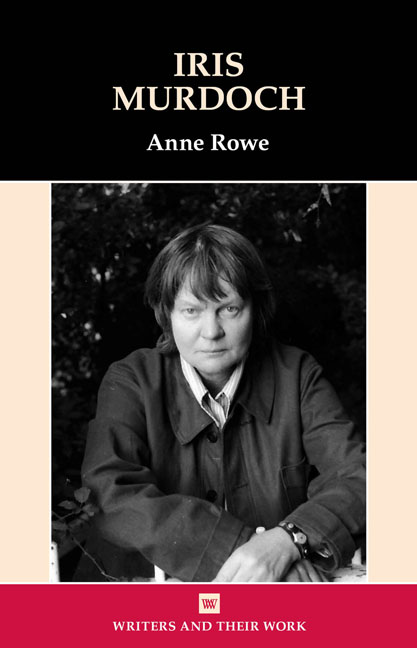Book contents
- Frontmatter
- Dedication
- Contents
- Acknowledgements
- Biographical Outline
- Abbreviations
- Introduction: Iris Murdoch (1919–1999)
- 1 A Writing Life: 1954–1995
- 2 Writing the Novel of Ideas: The Philosopher and Public Intellectual
- 3 Writing Sacraments: The Holy Atheist
- 4 Writing ‘A New Vocabulary of Experience’
- 5 Writing the Landscape: The Island of Spells and the Sacred City
- Afterword: ‘Onward!’
- Notes
- Select Bibliography
- Index
3 - Writing Sacraments: The Holy Atheist
- Frontmatter
- Dedication
- Contents
- Acknowledgements
- Biographical Outline
- Abbreviations
- Introduction: Iris Murdoch (1919–1999)
- 1 A Writing Life: 1954–1995
- 2 Writing the Novel of Ideas: The Philosopher and Public Intellectual
- 3 Writing Sacraments: The Holy Atheist
- 4 Writing ‘A New Vocabulary of Experience’
- 5 Writing the Landscape: The Island of Spells and the Sacred City
- Afterword: ‘Onward!’
- Notes
- Select Bibliography
- Index
Summary
Everything I have ever written has been concerned with holiness.
‘Good art which we love can seem holy and attending to it can be like praying’. (EM 452)
Murdoch habitually voiced concerns about the decline of religious faith in the West, fearing that innate religious impulses would become increasingly erratic and unregulated. In the1980s these fears extended to extreme versions of the Islamic faith which were becoming more militant and dogmatic, and were intensified when a fatwa was imposed on the novelist Salman Rushdie by the Ayatollah Khomeini of Iran in 1989. After the publication of Rushdie's The Satanic Verses in 1988, some vociferous Muslims had accused the book of blasphemy and Khomeini ordered that Rushdie should be killed. The issue vexed Murdoch. She wrote to her American friend, Naomi Lebowitz, a few weeks after the fatwa was imposed,
the Rushdie business is terrible […] perhaps Islam will conquer the whole planet in the next century […] ‘protests’ are going ahead, talk of sanctions etc, but nothing effective can be done as far as I can see. So one goes on in fury and amazement. It is a pity that Islam will now be hated in this country. (LOP 552)
She hoped that she exaggerated the situation, but hers were prescient concerns, not only about a burgeoning religious world vision that seemed to militate against Western notions of equality and justice, but also about the discrediting of Christianity that had accompanied Western liberalism in the late twentieth century. She feared that this tension between fanaticism and scepticism would characterize the early twenty-first century, where both could take the form of extremism.
She understood such global tensions as symptomatic of more personal ones that were playing themselves out in the common consciousness. A desire for religious belief endured, she thought, even amongst those who could no longer intellectually subscribe to any particular religious creed. She wrestled within herself with a desire to believe in a sense of unity within human life, what she defined as ‘the dream […] that does not cease to haunt us’ (EM 294), and a cool intellectual denial of that dream. This battle between desire and denial underpinned both Murdoch’s theological thinking and her fiction, which she thought could be a forum for such tensions to be freely debated.
- Type
- Chapter
- Information
- Iris Murdoch , pp. 59 - 77Publisher: Liverpool University PressPrint publication year: 2019

